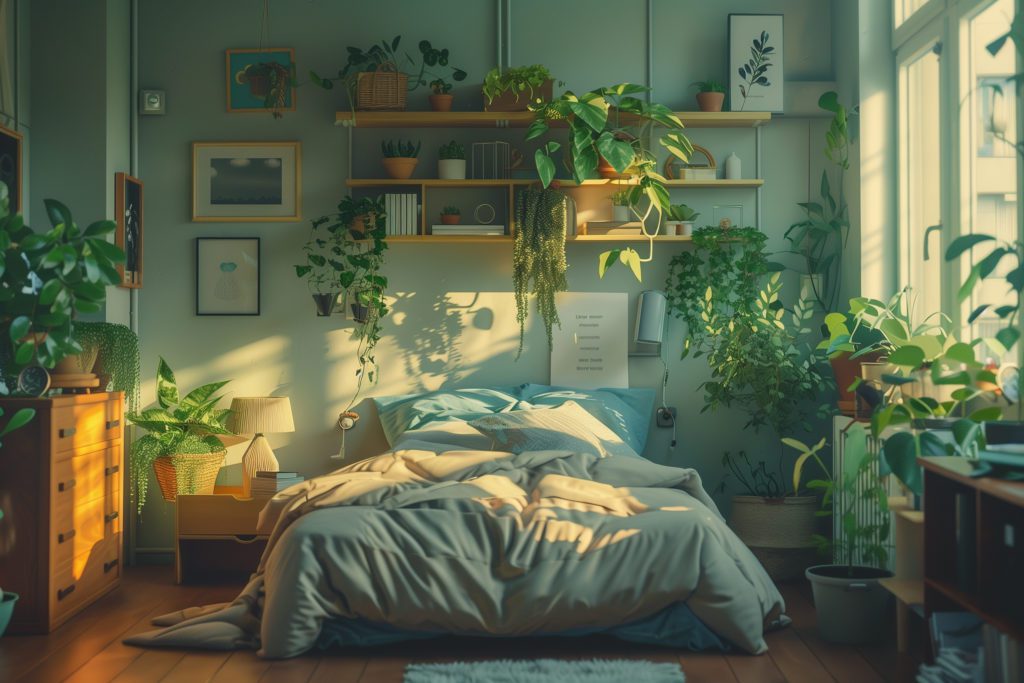
Natural Alternatives to Sleeping Pills: Herbal Supplements and Relaxation Techniques
Natural remedies can help you fall asleep and sleep soundly through the night. Explore these herbal supplements and relaxation techniques.

Are you struggling to get enough sleep but not interested in turning to sleeping pills? Luckily, natural medicine is full of other options to improve your sleep, from herbal supplements to lifestyle changes and relaxation techniques.
As with most things, some trial is necessary to find the natural alternative that best works for you—you may even find that multiple methods provide the best results or certain techniques are best in certain scenarios.
How to Sleep Better, Naturally
Getting good sleep is crucial for supporting your memory, decision-making, and creativity, along with preserving your health and preventing an increased risk of developing certain health conditions. However, sleep is a common concern, with many people not getting enough quality sleep each night.
If you’re looking for a natural way to sleep better, the following are some options:
Melatonin
Melatonin, also known as the sleepiness hormone, increases in production as the sun dips below the horizon and you approach bedtime. It’s the hormone that makes you feel sleepy, and once enough of it is produced, you finally drift off to sleep.
However, melatonin is strongly influenced by your circadian rhythm, meaning if your circadian rhythm is off for any reason, whether because you napped for too long during the day or have traveled across time zones, your melatonin production may be too low when you want to go to bed, causing you to toss and turn.
To help you fall asleep easier, consider taking a melatonin supplement. Melatonin has been shown to reduce the amount of time needed to fall asleep and increase the total amount of sleep that you get.
Exercise
Exercise serves as a great source of stress reduction, meaning it can help you relax enough to drift off to sleep more easily at night. In fact, research has shown that exercise can help boost the amount of deep sleep that you get, also known as slow-wave sleep.
One thing to be aware of with exercise, though, is that timing is crucial. Exercise can release endorphins, which can keep you awake and raise your core body temperature, making it hard to fall asleep. In general, avoid exercising for two hours before bed, and you’ll be good to go.
To further increase your relaxation, consider exercises such as yoga or tai chi, which combine breath and movement.
Valerian
Valerian is a staple of Chinese medicine thanks to its ability to naturally treat anxiety and depression—if you can’t fall asleep because your mind won’t quiet, valerian may help. In fact, it is one of the most popular sleep-promoting herbal supplements.
Research has shown that valerian root can help improve sleep quality, latency, and duration in people who have undergone heart surgery or those undergoing hemodialysis.
Deep Breathing
Focusing on your breath work can go a long way in relaxing both your mind and body. This is because these deep breaths offer you something to focus on, taking it away from the stressful thoughts. Additionally, deep breathing engages your parasympathetic nervous system, or your rest and digestion system. This aids in lowering your heart rate, reducing anxiety, and promoting sleep-inducing relaxation.
Lavender
Purple-flowering lavender is well-known for its benefits for sleep, thanks to its soothing scent.
Studies show that simply smelling lavender can be enough to improve sleep quality and can start showing improvements on just the second day of use. Part of these benefits may be because of its ability to reduce anxiety, which is a significant contributor to sleeping difficulties.
a benefit of lavender aromatherapy for sleep is that there are many different applications. For instance, you can diffuse lavender, use a lavender-scented linen spray on your pillow, or apply lavender-scented lotion before bed. All of these modalities allow you to breathe in the soothing scent.
Progressive Muscle Relaxation
Progressive muscle relaxation is a technique used to induce relaxation by using purposeful muscle tensing.
For this technique, you first create tension in a specific muscle group and take note of how the muscle feels when it is tense. Then you release the muscle tension, now noting how it feels when tension fades. You then move on to the next part of the body and repeat.
For many people, it helps to start at the base of your body—your toes—and then move up. So, this progression could move from the toes to the calves, thighs, hands, arms, abs, shoulders, lips, then eyes.
Passionflower
This flower can also improve your sleep, with a study on participants who took a passionflower extract for two weeks showing a significant improvement in their total sleep time, wake time during the night, and sleep efficiency, or how much time they spent in bed asleep instead of lying awake.
Check With Your Doctor Before Taking Herbal Supplements
While natural sleep aids are often deemed safe simply because they use the word “natural,” there are still some risks that can come with them. For instance, they can interact with other supplements you take or even prescription medications that you’re on. Some natural supplements may also not be recommended for people with certain medical conditions.
To ensure your safety, check with your doctor before beginning any natural supplements to guarantee they are safe for you to take and to discuss the correct dosages for your needs.
Finding Natural Ways to Sleep Better
With sleeping pills coming with their own set of unpleasant side effects, many people are in search of alternative ways to sleep better.
Various herbal remedies can improve your sleep; whether they’re brewed in a tea, such as valerian root or passionflower, or have a scent that is inhaled, such as lavender, plants can offer their sleep-promoting benefits.
There are also relaxation techniques you can implement to fall asleep more easily, such as exercising during the day, deep breathing, and progressive muscle relaxation.
Sometimes, it can be helpful to try out multiple techniques to find one (or a combination) that best meshes with your body. Before you know it, you’ll be getting more shut-eye each night.

Written by
Jessica G
Medical writer freelancer who has written hundreds of articles on varying topics. Masters of Engineering degree in Biomedical Engineering.
Download Pillow
Get help
Press & News
Legal
Connect
X (Twitter)
Company
Copyright © Neybox Digital Ltd.


